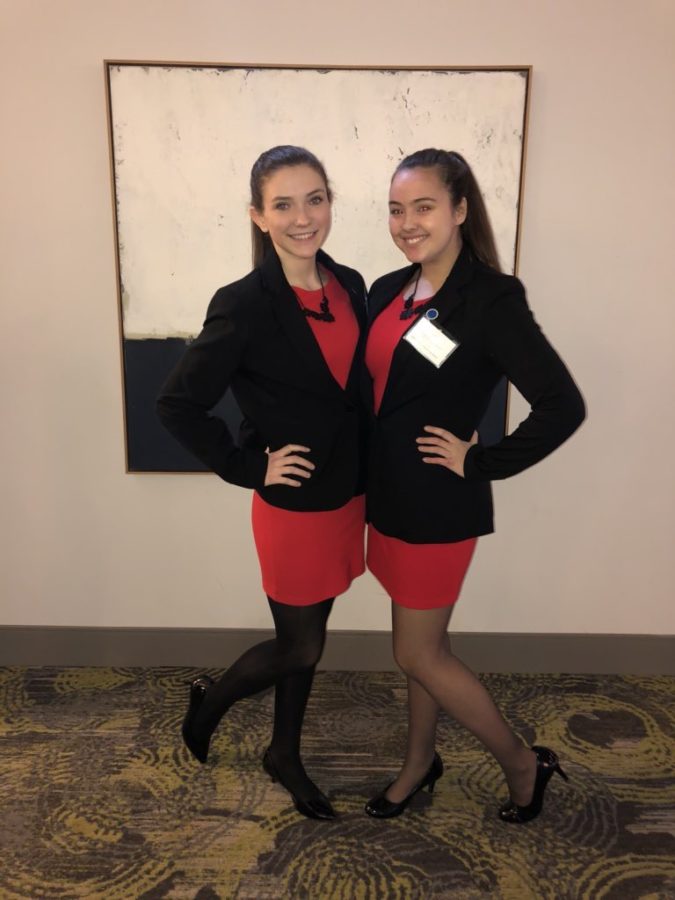Inside the DECA Competition
January 22, 2018
On January 12, members of DECA competed in a districts competition in Mansfield against 12 other schools. Of the 122 Somerset Berkley competitors, 72 are advancing into the state competition at Boston — the most of any school competing in their district competition.
I was able to talk to Mrs. Ayer about the competition. She explained that the competition is made up of two parts. One is an online test done prior to the competition, making up one-third of a team’s score. The other two-thirds is the business roleplay. Competitors who are top six in their category get to move on to the states competition.
Ayer told me, this year, a very big change was instituted. Teams of two, who were historically allowed to take the test together, this year, had to take their tests individually and average their test scores together.
Ayer told me her favorite part of DECA competitions: “The competitions give kids the opportunity to apply what they learn, it gives them a chance to try their hand, to find their niche.” She proceeded to tell me about numerous former students who found their passion doing DECA, like one who became a financial analyst.
Although Ayer is the advisor, the club is mainly student-run. Her main role is helping in fundraising, because DECA has to cover the large cost for chaperones. The rest of the money is split between the students to lower their admission fees.
I was also able to interview two DECA members as well: co-vice president Guy Parenteau and co-president Kara Kanuse. Both Parenteau and Kanuse prepared in similar ways for the competition.
Kanuse told me that “Sarah [her partner] and I as well as many other competitors practice with the Ghilarducci’s, studying for the test and doing the role plays.”
From all three of my interviews, it was made clear the Ghilarducci’s have been essential to Somerset Berkley’s success in DECA. Parenteau said “Mr. and Mrs. Ghilarducci, who have both been judging and coaching DECA for years now, give all of their time into helping us prepare for this, even opening up their home to all of us to get in some extra practice.”
Parenteau told me about his role play at this competition: “I compete in the category of Apparel and Accessories Marketing as an individual competitor. This year’s districts role play dealt with an issue regarding a large retail department store with struggling sales. The situation asked me how to market and rebrand the women’s athletic clothing department by trying to increase the sales in the women’s shoe department.” Parenteau said the main struggle with this role play was the ten minute time limit and the complex performance indicators. However, he had success in coming up with the idea to partner with Nike.
I also spoke to Kanuse about her role play. “For Sarah and I’s role play, we had to decide which business would be beneficial to put in the downstairs of an apartment complex,” she told me. Similar to Parenteau, she struggled with time limit but has great success in suggesting partnering with the Celtics.
Both Kanuse and Parenteau have been greatly impacted by DECA. Parenteau said, “DECA has impacted my life in so many ways, from enhancing my ability to speak in front of others, to knowing how to deal with a situation under stress and limited time.” Kanuse shared an excerpt from a college mini essay she wrote: “I chose my majors because of my involvement with the business club DECA… Along the way, I realized that I enjoyed business. Even when practicing role plays and tests for hours, I enjoyed myself. I found learning about communication channels and thinking-out-of-the-box was to market was fun.”
Congratulations to all of the Somerset Berkley students that competed!



